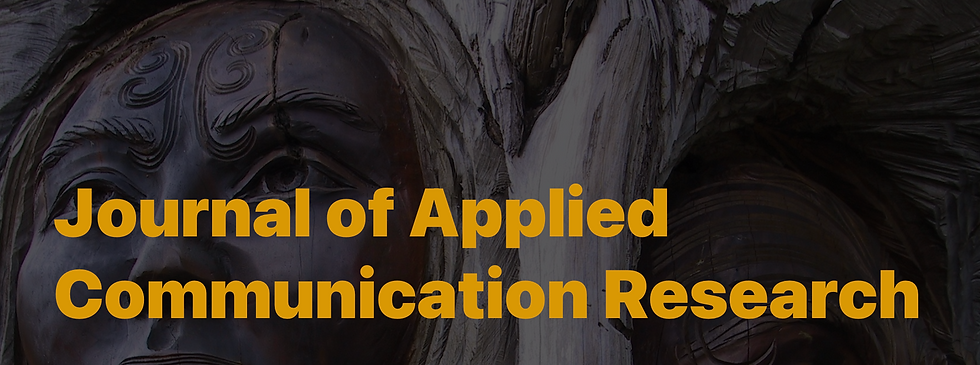Journal of Applied Communication Research Creates an Online Issue of Quarantined Across Borders
- Srivi Ramasubramanian
- Apr 20, 2021
- 2 min read
The Journal of Applied Communication Research (JACR) published a special, peer-reviewed online collection of digital essays on Quarantined Across Borders (QAB). Brief versions of these essays were originally published by Media Rise in summer 2020: Quarantined Across Borders Blog Series.

Publicly available and featured as a centerpiece on JACR's website, the online edition includes a summary and review of QAB. Additionally, the project presents 10 of QAB's reflections, along with the professional highlights of the three organizers behind QAB: Dr. Srivi Ramasubramanian (Texas A&M University), Dr. Aisha Durham (University of South Florida), Dr. Joëlle Cruz (University of Colorado). They shared about their roots and routes that intertwined over time and space, leading to this special issue collection. Here is their introductory essay: "Quarantined across borders: Theorizing embodied transnationalism, precarious citizenship, and resilience for collective healing."
JACR is a peer-reviewed publication that gives communication scholarship a national platform. Uniquely, JACR appeals to both academic and practitioner audiences.
JACR's mission is to bridge the gap between communication theory and interpersonal problem-solving. The journal specifically focuses on how issues of social justice and intersectional sociology can be alleviated with communication. Therefore, QAB fits within JACR's identity swimmingly.

QAB's evocative narratives about the COVID-19 pandemic communicate the experiences within borderland, immigrant, and diasporic communities.
This new, online issue of QAB showcases a co-written essay by QAB's three organizers, who are women of color and immigrant scholars. The essay is about embodied transnationalism, which explores the narratives in QAB as mere reflections of the editors' experiences while navigating spaces where Brown and Black people have been isolated - even before Covid-19 happened.
In the online edition, communication scholar Mohan J. Dutta writes his reflections about his experience mindfully consuming QAB. In his essay, "Making and breaking boundaries," Dutta explores the communicative and logistical barriers that historically oppressed people groups face in quarantines and lock-downs.
The simultaneous im-permeability, fluidity, and porosity of the borders voiced in these critical reflections invite us to imagine transformative registers. The intersecting interplays of the personal and the political form the basis of theorizing our collective responses to the pandemic. How we come to co-create our relational and collective responses to the pandemic, rooted in an ethic of care, marks the opening for solidarities so urgently needed to build a socially, politically, and economically just world.





Comments